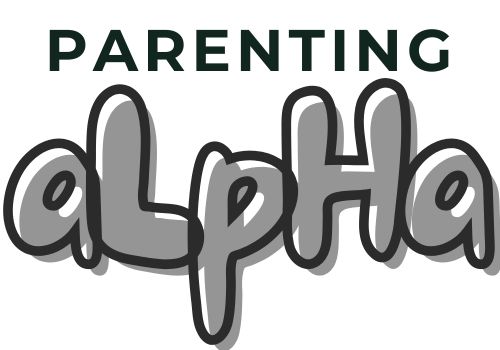The executive functioning skills describe our higher-level mental abilities to manage and regulate tasks, actions, and emotions. They are helpful in keeping us alert, organized, and emotionally secure.
The skills involve the use of logic to have ourselves under constant check, and prevent negative energy and emotions from taking over.
To illustrate, our executive functions are working just fine if we can do the following correctly:
- Plan, start, execute, and complete goals.
- Pay attention.
- Filter distractions.
- Juggle multiple tasks and time efficiently.
- Have inhibitory control and better self-management.
- Have an open and flexible mind.
- Regulate and control our private and public behavior.
- Control anger, sadness, and even happiness.
Executive function skills in child development
Executive functions are important because they are central to social-emotional wellbeing, academic excellence, and productivity in children. Children with higher levels of ‘executive functions’ are certainly good learners and workers. They also exhibit positive behavior, have better social lives, and make healthy choices in life.
The opposite is true in a child who cannot master healthy executive functioning skills. She will comparatively have problems learning at school, and will develop questionable personalities.
Unfortunately, children are not born with working executive functions. But fortunately, they come into this world with inherent capabilities to learn them. They can learn these skills with the help of parents, educators, and clinicians who provide supportive routines, playtime, and games.
What happens is that parents and educators set up relevant scaffoldings and structures that enhance the acquisition of these lifelong skills.
NOTE: The executive functions and the human anatomy
Executive functioning skills are associated with the frontal lobes of the brain, that are located just above the eyes. To support the frontal lobes are the connecting cortical lobes and subcortical frameworks. The frontal lobes account for roughly 40% of the size of the brain. They are also the LAST faculties of the brain to develop and mature.
What are the 3 major executive functioning skills?

Different sources and arguments list anything from 5 to 12 executive functioning skills. But these can be summarized into three broad categories:
1. Working Memory
Working memory sums up your child’s ability to retain new information and use this efficiently in an ongoing cognitive activity.
It is like a ‘sticky note’ in the brain which retains information during an active task she is working on.
It facilitates planning, comprehension, reasoning, and problem-solving.
NCBI
For children to master this mental skill, encourage them to create mental images of the tasks at hand or the text they are reading. Factors such as attention and focus play a big role in furthering working memory. These can be disturbed by distractions and other reasons.
This is not to say distractions are bad. Rather, children must be helped to work their way through simple distractions at first, in order to become better at multitasking with many distractions.
Parents should chunk information into small bits in order to help children remember most of the information they are given, such as lists of items to buy. The tasks given to children should not be the reason they fail to focus and pay attention.
For example, your child may fail to remember items you ask her to fetch or do because of poor instructions. When you send your child to fetch your boots, turn off the TV, and get your belt first, she may remember to get the watch and forget about the rest, or vice versa.
What this means is that working memory should not be taxed to the extent that comprehension becomes a problem.
In the following sentence, for example, comprehension can be a problem both for children and adults due to poor arrangement of words:
It is said that, if your work is not overwhelming, your car is in good repair, and the leaves have changed color, it is a good time for a fall vacation.
NCBI
Yet the sentence can make better sense if said differently:
It is said that a good time for a fall vacation is when your work is not overwhelming, your car is in good repair, and the leaves have changed color.
NCBI
Failure to execute working memory is evident when your child is forgetful, slow in solving problems, and planless when faced with challenges that demand prompt answers and actions.
2. Flexible Thinking
Flexible thinking or cognitive flexibility describes your child’s ability to figure out multiple solutions to everyday tasks and emerging challenges.
This happens in real life, because our plans are subject to changes because of one reason or another. This forces us to figure out new solutions. It is more or less a Plan B strategy!
Ultimately, your child should learn to tweak her decisions based on emerging challenges.
When she is flexible in mind, your child will:
- adjust her thinking and expectations by adapting to new situations and environment
- look at things differently by shifting her approaches
- explore new possibilities by improvising with new and better solutions
A child with a flexible mentality will not mind switching seats in the classroom in the event that another child takes hers.
Elsewhere, when you send your child to the shop to purchase your favorite peanut butter and it is missing, her ability to opt for an alternative solution is very important.
Without a flexible mind, your child will most likely walk back home empty-handed.
Also true, your child’s ability to try out an alternative route to school when the main road is closed is invaluable. Often times, the ‘obvious‘ option is to walk back home. Children who are brought up in a rigid design and only have one answer to individual challenges will likely fall victim to the demands of flexible thinking.
Parents and educators can incorporate the concepts of rigidity and flexible thinking in play and other tasks, to help children see the differences in their choices.
3. Self-control
Self-control, self-discipline or inhibitory control describes the mental skills your child uses to manage and restrain her thoughts, actions, emotions, and other responses.
The skill helps her to think before she becomes involved in useless fights with peers with whom she disagrees. This gives meaning to the phrase – think before you act. Effective development of the skill builds up to what is known as emotional intelligence.
Children learn to master this skill when parents themselves exhibit self-control at home. They will learn to control their emotions and desires when their parents do the same.
You can find out if these skills have developed correctly by subjecting your child to marshmallow tests and other experiments. As much as these tests may not be the perfect reflectors of self-control, somehow, they are indicators of mental development in your child.
Executive function disorders:
A child with executive function disorders will exhibit some or most of the following traits:
- Difficulty staying organized in private and in public:
- Finds it hard to process, store, and retrieve information
- Is socially inhibited
- Has difficulty planning for now and tomorrow
- Finds it hard to manage time
- Has difficulty paying attention and sitting still like others
- Does not start and complete tasks unless reminded repeatedly
- Loses personal belongings and other stuff
- Is poor at managing multiple tasks
- Has trouble managing emotions and impulses
- Is involved in risky activities
- Lacks the concern and care for people and animals
- Is poor at self-awareness
- Stays away from challenging tasks
- Has low levels of motivation and interest
Other factors known to disrupt executive functioning skills
Executive function deficits may happen due to medical and other conditions listed here:
- Genetics
- Brain injury
- ADHD
- Drug and other substance abuse
- Trauma
- Dementia
- Obsessive-compulsive disorder
- Depression
- Autism
- Attention-deficit/hyperactivity disorder
- Schizophrenia
The Impact of Technology on Executive Functioning Skills

Yes, technology can potentially pose bad effects on executive functions, although the extent of this interference can vary depending on usage and the individual.
- Distractions: With the proliferation of smartphones, social media, and other digital platforms, it has become easier than ever to get distracted. Constant notifications, alerts, and the temptation to browse the internet or engage in social media can divert attention and disrupt focus.
- Multitasking: Technology often encourages multitasking, such as checking emails, texting, or using multiple apps simultaneously. While some individuals may believe they are proficient multitaskers, research suggests that multitasking can actually impair cognitive performance, particularly in tasks that require focused attention.
- Information overload: The digital age has brought about an unprecedented amount of information accessible at our fingertips. While this can be beneficial for knowledge acquisition, it can also lead to information overload. This can make it difficult to filter and prioritize relevant information. This overload can impede decision-making processes and hinder executive functions related to critical thinking and problem-solving.
- Reduced self-regulation: The immediate gratification provided by technology, such as social media likes, online shopping, or instant entertainment, can create challenges in self-regulation. Executive functions play a crucial role in self-regulation by helping individuals resist impulsive behavior and make decisions aligned with long-term goals. Overreliance on technology can undermine these self-regulatory processes.
- Decreased cognitive effort: Technology often provides quick and easily accessible solutions to various tasks, reducing the cognitive effort required for problem-solving and decision-making. Relying heavily on technology to handle routine cognitive tasks can potentially lead to a decline in executive function skills.
While technology can interfere with executive functions, it is important to note that it can also be used to support and enhance them. It ultimately comes down to the individual’s awareness, self-discipline, and intentional use.
Finally …
If you want your child to live happily and become successful, you must make an effort to boost her executive functions.
The skills will begin to make sense to your child when you practice them first. Coupled with trust and willingness to think outside the box, your child will see reasons to embrace them and maximize their benefits.
The early efforts to nurture executive functions will ultimately become the predictors of what they will become when they grow up.





Leave a Reply